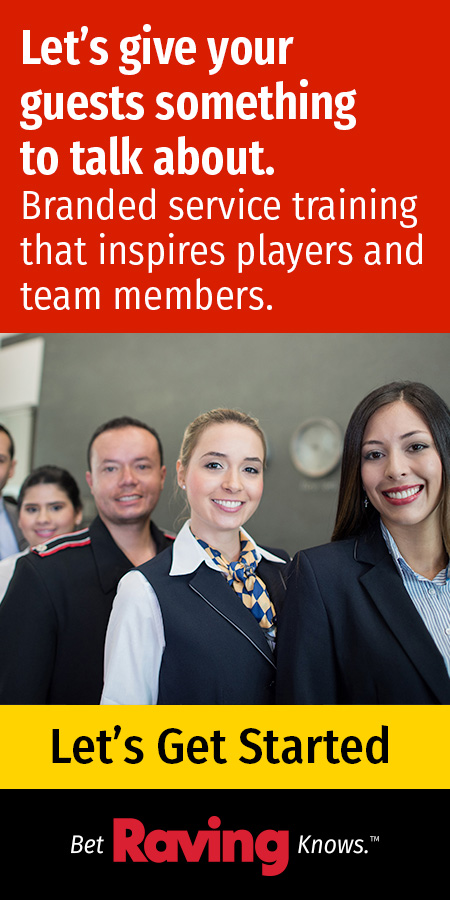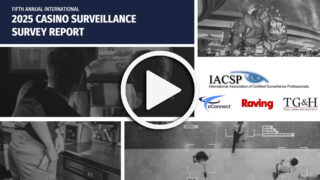
Combining both skills will get you a host who is a guest service expert and skilled at driving revenue
Education or Training?
Believe it or not, there is a big difference between the two, and it can affect in a very significant way the types of programs that you subject your employees to.
Let’s talk training for a moment. You see, training involves teaching someone how to do something. It is specific to the completion of tasks related to our jobs, our hobbies, our charities, our what-have-you. Every gaming property has a need to train their employees on how to perform their tasks and complete their job assignments. Every gaming property has OJT trainers in each department who are skilled (hopefully) at teaching employees the ins and outs of HOW TO DO THEIR JOBS.
On the other hand, education is about knowledge, about acquiring information and data about a certain subject or area of expertise. It may or may not be related to how you do your job. It may allow you to apply yourself to your job tasks with greater diligence or efficiency or productivity, but it is not directly related to HOW YOU DO YOUR JOB. That’s training.
In the past, I have used the old fishing analogy to explain the difference between the two. I can train you on how to bait a hook, cast a lure, reel in a fish, clean it, and cook it for your dinner. Ah, but to be really good at catching the fish, or really good at cooking it in unique and tasty ways, well, that takes education. The more you know about fish, their habitats and behaviors, etc., the better a fisherman you will be. But to simply catch, clean and cook a fish, well, that is training.
And that brings me to the modern Player Development function within today’s gaming environment. You see, most hosts are trained in how to introduce themselves to players, build relationships with them through the delivery of superior service skills, and retain their business. These are training skills that most anyone can learn.
But what about education? What about your hosts’ education requirements? What must they be educated in that, although not directly related to how they perform their work, nevertheless makes the difference between a host skilled at driving revenue for their casino and one who is simply a guest service expert good at “Taking Care of Players” (which in reality is what ALL of your casino employees should be skilled at).
The difference is in how you educate your hosts about certain subjects, and then use training to show them how to use that education effectively. Without both training AND education, your hosts will fall short in their efforts to be business development professionals for your casino.
We often call the host who is mainly skilled at taking care of players a “Hugger,” while those educated in the ways of driving revenue and business are called “Hunters.” To be sure, the best hosts are both Hunters and Huggers, and it is a combination of education and training that helps them achieve that level of skill.
That’s why here at Raving we have focused on developing both types of programs, educational programs to give them the knowledge base that they need to succeed, and training programs that show them HOW to use their education to achieve the results you set for them.
What are the EDUCATIONAL requirements of a good Host Training program?
- Detailed knowledge of your entire casino/hotel property and that of your main competitors.
- Detailed knowledge of all casino/hotel business processes encountered by guests (hotel, check cashing, credit, slot inventory, table game rules and limits, show reservations, restaurant hours and pricing, etc., etc., etc.).
- Intimate knowledge of every aspect of the Players Club and the player reward program.
- Full awareness of all player development opportunities (identifying sales leads via multiple channels of opportunity).
- Knowing the math of the business, how we make money, how we value players, the strengths and weaknesses of our mathematical models, tracking systems and accumulated data, and how math drives the very existence of our industry.
- Soft skills around leadership, ethics, service and psychology (especially player psychology). What are the TRAINING requirements of a good Host Training program?
What are the TRAINING requirements of a good Host Training program?
- Knowing how to use the math skills to develop and prioritize sales goals and targets.
- Knowing how to use the math skills to identify sales leads, prioritize player lists, and categorize players according to strategy.
- Knowing how to use the math and player models to manage a book of business through a step-by-step procedure for organizing and selling to large groups in the most effective way.
- Knowing how to use the soft and hard skills to craft a step-by-step procedure for selling to each new and underserved player in their book (from lead generation, to negotiation, to sales fulfillment).
- Knowing how to use time management and organizational skills to eliminate waste and make their work more targeted and productive every day.
Many have tried to effectively improve a host’s skills by tackling one or the other, but it is a holistic approach combining both educational programs and step-by-step training programs that leads to a well-rounded and effective sales professional for a gaming property.
So take a look at the skill sets of your hosts. What training do they need, but more importantly, what education programs should be put in place to make the training effective and usable? Without both, you may find that your hosts are still spinning their wheels and not achieving the sales goals that you set for them.
Here at Raving we can help, because over the last fifteen years we have been developing complete training programs for hosts that include the educational components necessary (mathematics, modern selling strategies and techniques, soft skills and behaviors) and the training components necessary to use the education effectively (selling formulas, step-by-step procedures for managing large groups of players, methodologies for finding and targeting valid qualified sales leads from within your database, etc.).
Education or training? You need both … that is, if your player development efforts are to be fruitful and catch all that extra player revenue you are currently leaving on the table.







